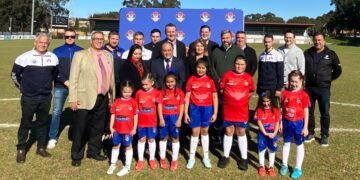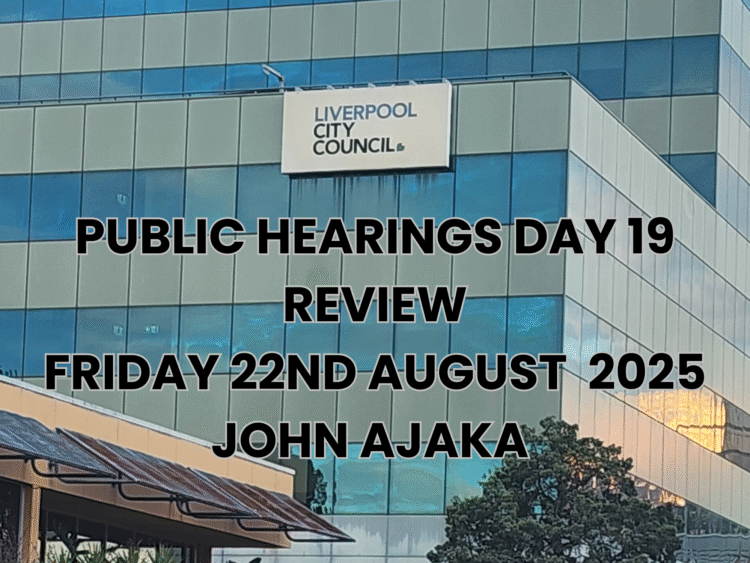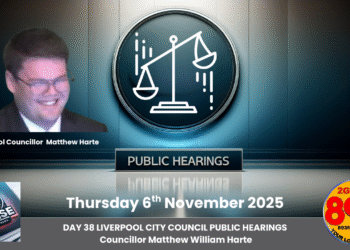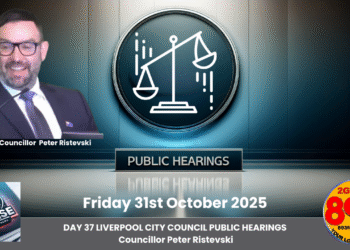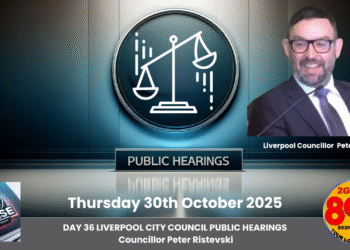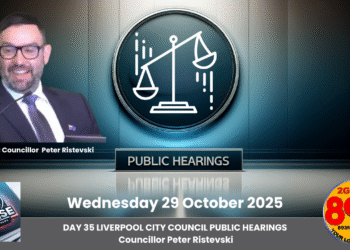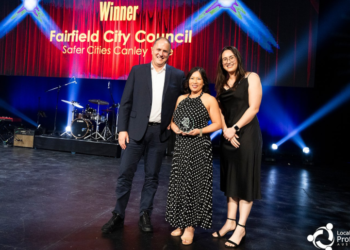John Ajaka’s Testimony: Recall and Context
Mr John Ajaka, resworn for the session, was recalled to address new evidence presented by other witnesses, including Sandie Morthen and Lauren Myers, and to discuss additional documents produced since his initial testimony. Ms McDonald noted that Mr Ajaka had not watched the other witnesses’ evidence live but had read parts of the transcript provided by his lawyer. He was offered the opportunity to review specific transcripts if needed during questioning, ensuring fairness in addressing matters raised by others.
The inquiry revisited the timeline of events leading to the council meeting on 24 April 2024. Mr Ajaka confirmed receiving an email from Mayor Mannoun around 12 April 2024, requesting budget modelling and recommendations on four specific areas. This email set the stage for subsequent discussions and meetings, including a notable meeting on 16 April 2024, referred to as the “swearing meeting,” attended by the mayor, Deputy Mayor Macnaught, Mr Portelli, and Mr Ajaka himself.
Discussions with Deputy Mayor Fiona Macnaught
A significant focus of Mr Ajaka’s testimony was his interactions with Deputy Mayor Fiona Macnaught in the lead-up to the 16 April meeting. He recalled at least two discussions with her: one at a social event, specifically a wedding of a councillor’s son on or around 13 April, and another in his office, likely on the morning of 16 April at 8 AM. Text messages between Mr Ajaka and Lauren Myers and between Ms Myers and Ms Macnaught were presented to jog his memory regarding the timing and content of these discussions.
At the wedding, Mr Ajaka and Ms Macnaught informally discussed the mayor’s email proposing budget changes. Ms Macnaught expressed surprise at being included in the email and questioned its intent, while Mr Ajaka shared that the mayor had been pressing him for some time to remove two directors, disband the legal team, and eliminate certain managers—proposals he resisted as they constituted a restructure requiring proper process. Ms Macnaught disagreed with these actions, citing concerns about the timing ahead of an upcoming election, and they agreed to discuss further in a more formal setting.
The second meeting on 16 April in Mr Ajaka’s office reiterated these concerns. With the mayor’s email in front of them, both reiterated that the proposed changes were ill-timed and inappropriate. Ms Macnaught expressed nervousness and clear disagreement with removing directors or restructuring without process, and it was agreed she would raise these objections at the afternoon “swearing meeting” with the mayor. Mr Ajaka felt reassured that she would support his stance. However, during the actual meeting later that day, Ms Macnaught did not speak up as anticipated, which began to surprise Mr Ajaka, though the transcript cuts off before further detail on this point is provided.
Broader Implications
Mr Ajaka’s testimony illuminated the deep-seated tensions within Liverpool City Council’s leadership, particularly between the CEO and the mayor over budget and staffing decisions in early 2024. The discussions with Deputy Mayor Macnaught reveal a potential ally in resisting what Mr Ajaka viewed as improper restructuring efforts, yet her silence at the critical meeting suggests underlying complexities in council dynamics or political pressures. These interactions highlight challenges in governance, transparency, and decision-making processes during a period of significant unrest.
The hearing adjourned with further examination expected in upcoming sessions, as the inquiry continues to unravel the intricate relationships, conflicting priorities, and operational challenges within Liverpool City Council. Mr Ajaka’s evidence offers a crucial perspective on how internal disputes and proposed cuts impacted strategic planning and staff morale, raising broader questions about accountability and leadership cohesion.
These contentious points are essential for the public to understand the underlying governance challenges at Liverpool City Council, as they directly affect transparency, accountability, and the potential for fair representation of community interests amidst internal power struggles.

